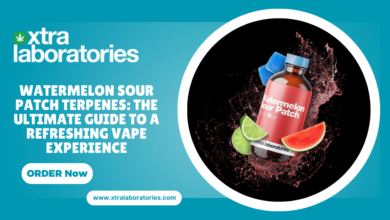
Digital marketing is a vital component of any modern business strategy, enabling brands to reach their target audience, drive traffic, increase sales, and enhance customer engagement. With the growing number of digital marketing tools and platforms available today, it can be challenging for businesses to choose the best ones that align with their objectives. To simplify this, we’ve curated a list of the top 10 digital marketing platforms that every business should consider using in 2024.
1. Google Ads
Google Ads (formerly Google AdWords) is one of the most popular and effective paid advertising platforms available. With Google Ads, businesses can display their ads across Google’s search engine results pages, YouTube, and other partner sites. Google Ads provides powerful targeting options, such as keywords, geographic location, and demographic information, making it ideal for businesses looking to attract qualified traffic. It operates on a pay-per-click (PPC) model, ensuring that advertisers only pay when users interact with their ads.
Key Features:
- Keyword-based targeting
- In-depth analytics and performance tracking
- Remarketing capabilities
- Various ad formats, including text, display, and video
Best for: Businesses looking for precise targeting and a massive reach to attract new customers.
2. Facebook Ads
Facebook, now integrated with Instagram, provides advertisers with a vast audience base of over 2 billion active users across its platforms. Facebook Ads is a versatile tool that allows businesses to run a variety of campaigns such as lead generation, brand awareness, website traffic, and sales conversion. The platform’s robust targeting capabilities—based on user behavior, interests, location, and more—make it an excellent choice for businesses looking to connect with their ideal customers.
Key Features:
- Multi-platform reach (Facebook, Instagram, Messenger)
- Advanced audience targeting
- Ad formats include carousel ads, video ads, and more
- Detailed performance insights and A/B testing
Best for: Businesses of all sizes looking to reach a highly engaged and diverse audience.
3. LinkedIn Ads
LinkedIn is the premier social network for professionals, making it an invaluable platform for B2B (business-to-business) marketing. LinkedIn Ads offers a variety of ad formats, including sponsored content, message ads, and text ads, to target professionals based on job title, industry, company size, and more. This makes it a powerful tool for businesses that want to generate leads, promote content, or recruit top talent.
Key Features:
- Precision targeting based on job title, industry, and company size
- Lead generation capabilities
- Professional content promotion
- High engagement rates in B2B sectors
Best for: B2B companies, recruiters, and those aiming to target professionals with specific job roles or industries.
4. HubSpot
HubSpot is an all-in-one inbound marketing platform that enables businesses to manage various marketing activities, including email marketing, SEO, social media, and content management. It’s particularly well-suited for businesses looking to integrate their marketing and sales efforts into a unified system. HubSpot’s user-friendly interface, along with its CRM (Customer Relationship Management) tool, allows marketers to manage leads and track customer journeys from initial contact to conversion.
Key Features:
- CRM and sales automation
- Email marketing and lead nurturing tools
- Blogging and content management system (CMS)
- Analytics and reporting tools
Best for: Businesses that need an all-in-one marketing solution for lead generation, customer nurturing, and conversion.
5. Mailchimp
Mailchimp is one of the leading email marketing platforms available, catering to businesses of all sizes. It allows users to create highly personalized and targeted email campaigns, build automated workflows, and track the performance of each campaign. Whether you’re looking to send newsletters, product updates, or special promotions, Mailchimp provides tools that help businesses create effective email marketing campaigns.
Key Features:
- Email automation and segmentation
- A/B testing for emails
- Advanced reporting and analytics
- E-commerce integrations with Shopify and WooCommerce
Best for: Small to medium-sized businesses looking for a cost-effective and user-friendly email marketing platform.
6. Twitter Ads
With over 350 million active users, Twitter remains one of the top platforms for businesses to engage with their audience and increase brand visibility. Twitter Ads offers various ad formats such as promoted tweets, trends, and accounts. The platform is especially useful for real-time engagement, promotions, and announcements. With precise targeting based on interests, behaviors, and followers, Twitter Ads allows businesses to reach the right audience at the right moment.
Key Features:
- Promoted tweets, accounts, and trends
- Audience targeting based on keywords, interests, and demographics
- Real-time engagement opportunities
- Performance tracking and analytics
Best for: Businesses looking to generate buzz, engage in real-time conversations, and drive traffic quickly.
7. YouTube Ads
As the second-largest search engine after Google, YouTube is an essential platform for video marketing. YouTube Ads offers several ad types, including skippable and non-skippable video ads, display ads, and overlay ads. This platform is perfect for businesses aiming to engage customers with visually appealing video content, product demos, tutorials, or customer testimonials. The platform’s targeting options—such as keywords, interests, and demographic data—ensure your video ads reach the right audience.
Key Features:
- Multiple video ad formats (skippable, non-skippable, bumper ads)
- Powerful targeting options
- Advanced analytics and tracking
- Integration with Google Ads for better ad management
Best for: Businesses looking to showcase products and engage customers with video content.
8. TikTok Ads
TikTok has rapidly become a dominant force in social media marketing, particularly among younger audiences. TikTok Ads allows businesses to create engaging video content that blends seamlessly with user-generated content. TikTok offers ad formats like In-Feed Ads, Branded Hashtag Challenges, and Branded Effects. With its interactive features and viral potential, TikTok is a great platform for businesses to increase brand awareness, drive user engagement, and reach new audiences.
Key Features:
- Creative and interactive ad formats
- Viral marketing potential
- Highly engaged younger demographic
- Robust audience targeting
Best for: Brands targeting Gen Z and millennials who want to leverage viral, short-form video content.
9. SEMrush
SEMrush is a leading SEO tool that helps businesses improve their search engine rankings and optimize their digital marketing efforts. From keyword research and competitor analysis to site audits and backlink tracking, SEMrush provides an extensive set of features for SEO and paid search campaigns. SEMrush is an indispensable tool for digital marketers looking to enhance their organic search visibility and drive more qualified traffic.
Key Features:
- Keyword research and analysis
- SEO audit tools
- Competitor analysis and benchmarking
- Paid advertising research
Best for: Businesses aiming to enhance their organic search performance and improve their SEO strategy.
10. Hootsuite
Hootsuite is a social media management platform that allows businesses to schedule, manage, and analyze their social media campaigns across multiple platforms (including Facebook, Instagram, Twitter, LinkedIn, and more). The platform simplifies social media marketing by providing tools for content scheduling, engagement, and performance tracking. Hootsuite’s team collaboration features are particularly useful for businesses with larger social media teams.
Key Features:
- Social media scheduling and automation
- Performance tracking and analytics
- Team collaboration and workflow management
- Integration with multiple social media platforms
Best for: Businesses managing multiple social media accounts and aiming for efficient content scheduling and performance tracking.
Conclusion
As digital marketing continues to evolve, selecting the right platform for your business is crucial for achieving success. Whether you’re focusing on paid advertising, social media marketing, email campaigns, or SEO, the tools and platforms listed above provide businesses with powerful capabilities to boost their online presence, engage with customers, and achieve growth. By leveraging the right platforms and aligning them with your business goals, you can unlock the full potential of digital marketing and stay ahead of the competition.


